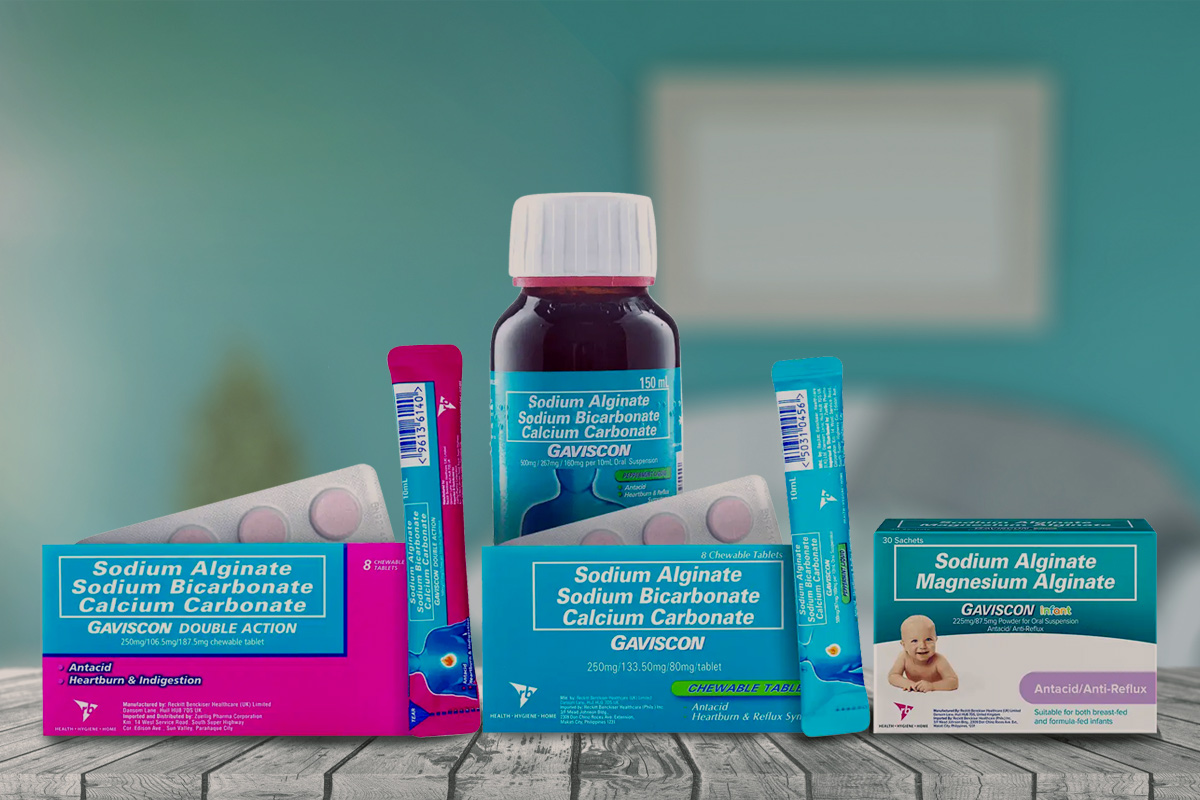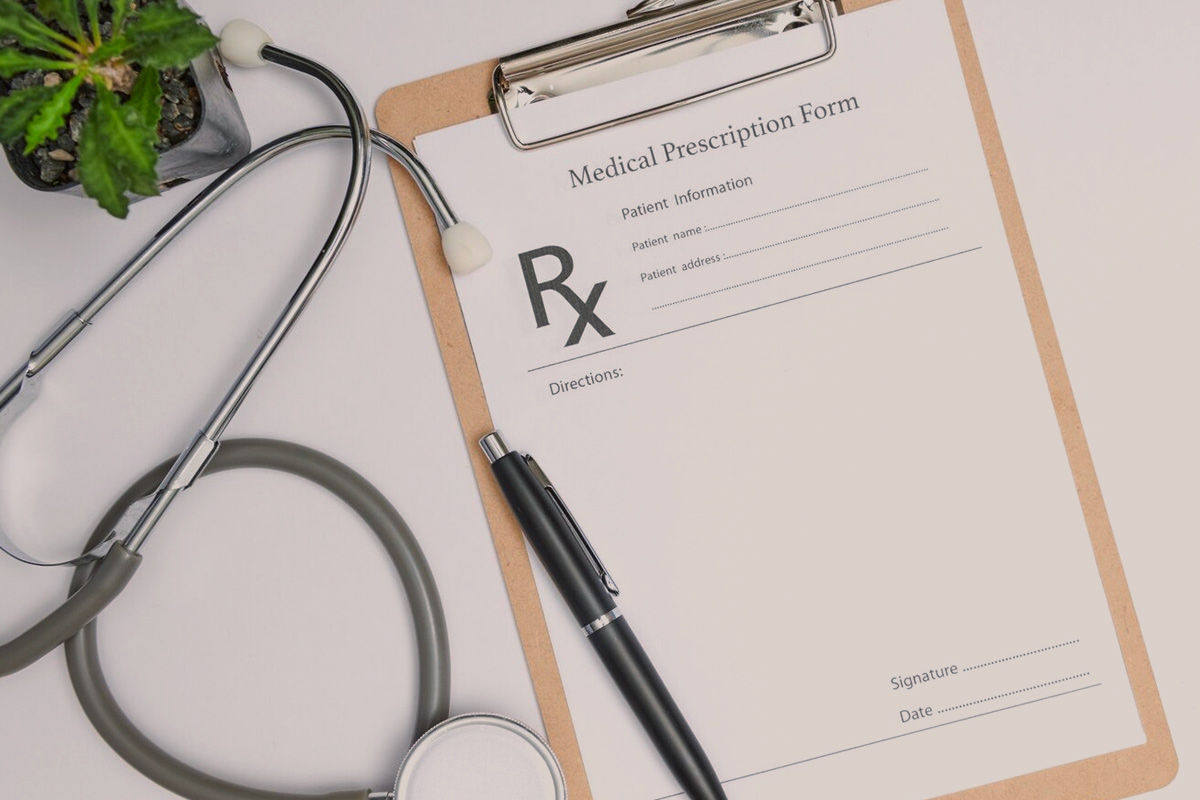Acid reflux can be effectively managed with lifestyle changes, over-the-counter treatments, and prescription medications.
Imagine this: you're enjoying a delicious meal, savoring every bite, only to be interrupted by that all-too-familiar burning sensation in your chest. Acid reflux doesn’t just cause discomfort—it can derail your day, disrupting meals, sleep, and even moments of relaxation. Left unchecked, it can lead to more serious complications, including long-term damage to your esophagus. That’s why understanding and addressing acid reflux is essential. Whether it’s through simple lifestyle changes, over-the-counter remedies like antacids, or prescription medicine after consulting a physician for more persistent cases, finding the right solution can help you reclaim your daily life.
Understanding Acid Reflux
Acid reflux is when stomach acid flows back into the esophagus, the tube that connects the mouth to the stomach. This backward flow occurs when the lower esophageal sphincter (LES), a ring of muscle at the end of the esophagus, doesn’t close properly or opens too often. The LES is supposed to act as a one-way valve, allowing food to enter the stomach and prevent food from returning.
Symptoms
Common symptoms of acid reflux include:
- Heartburn - A burning sensation in the chest, often rising toward the throat, usually occurring after meals or when lying down. It's caused by stomach acid irritating the lining of the esophagus.
- Regurgitation - The sensation of acid or food moving back up into the throat or mouth, leaving a sour or bitter taste.
- Dyspepsia - A general term for indigestion, which includes symptoms like bloating, nausea, and an uncomfortable fullness in the stomach after eating.
Risk Factors
Acid reflux may be triggered or exacerbated by diet, lifestyle factors, and certain medical conditions:
- Spicy food, caffeine, alcohol, and large meals can exacerbate acid reflux symptoms1
- Obesity, smoking, and low levels of physical activity have been identified as significant contributors to the development of GERD 1
- Medical conditions such as hiatal hernia and pregnancy may also increase the risk of acid reflux1
Managing Acid Reflux
Now that we understand what causes acid reflux, some of its symptoms, and what might exacerbate, let’s explore your options, from lifestyle changes to over-the-counter remedies and medical procedures. Understanding the difference between remedies for immediate relief and more serious treatment options can help you make informed decisions about your health.
Exploring Everyday Lifestyle Changes

Small, simple changes in your daily routine can help you prevent and manage the symptoms of acid reflux.
- Eat smaller meals since large meals can exacerbate acid reflux 1
- Choose high-fiber foods such as oatmeal and brown rice, which make you feel full and help you avoid overeating6
- Avoid caffeine, alcohol, and spicy foods since these can exacerbate acid reflux1
- Quit smoking – Smoking weakens the lower esophageal sphincter (LES)4, so quitting or minimizing smoking can help you manage your acid reflux
- Get active – Frequent physical activity decreases the risk of developing GERD5 and helps in reducing obesity, which is a risk factor for acid reflux
| Check out our Acid Reflux Food Guide to discover what kinds of food to avoid as well as learn what's safe to eat to manage acid reflux. |

Over-the-Counter Treatments

Over-the-counter (OTC) medications can help you get effective relief from the symptoms of acid reflux. . Products like Sodium Alginate + Sodium Bicarbonate + Calcium Carbonate (Gaviscon) contain active ingredients that form a protective barrier over your stomach contents, stopping acid from rising and soothing the burning sensation in your chest. Sodium Alginate + Sodium Bicarbonate + Calcium Carbonate (Gaviscon) works in as fast as and provides effective heartburn relief for up to four hours.

Sodium Alginate + Sodium Bicarbonate + Calcium Carbonate (Gaviscon) helps alleviate the following symptoms:
- Burning in chest
- Bitter or acidic taste in your mouth or throat
- Difficulty swallowing
The non-systemic mode of action of Sodium Alginate + Sodium Bicarbonate + Calcium Carbonate (Gaviscon) makes it suitable for use during pregnancy and while breast-feeding. However, it is still best for pregnant women to consult an OB-GYN, as their symptoms might be pregnancy-related.
Over-the-Counter Treatments

When over-the-counter options aren't enough to control your symptoms, prescription acid reflux medicine may be necessary. These medications are designed to provide stronger, more sustained relief and are often recommended for more severe or persistent cases of acid reflux.
Consulting with a healthcare provider can help determine which prescription option is best suited for your needs.
Prescription medications for acid reflux include Histamine-2 (H-2) Blockers and Proton Pump Inhibitors (PPIs), both of which inhibit acid production. H2 Blockers have more immediate effects but lose their effectiveness over time. PPIs are more powerful and are used to treat chronic conditions related to excess stomach production.7
Remember: prescription medications should only be taken under the guidance and supervision of a physician to ensure safe and effective treatment.
Conclusion
Acid reflux doesn’t have to rule your life. You can make lifestyle changes to manage your symptoms, get immediate relief with over-the-counter options, or talk to your doctor for prescription medications. With the right approach, you can take control of acid reflux and bring comfort back into your everyday life. If symptoms persist, consult your doctor.
References:
- Mayo Clinic Staff. (n.d.). GERD: Symptoms and causes. Mayo Clinic. Retrieved December 2, 2024, from https://www.mayoclinic.org/diseases-conditions/gerd/symptoms-causes/syc-20361940
- GERD Diet: Foods That Help with Acid Reflux (Heartburn). Retrieved January 23, 2025, from https://www.hopkinsmedicine.org/health/wellness-and-prevention/gerd-diet-foods-that-help-with-acid-reflux-heartburn
- 9 at-home treatments for acid reflux. Retrieved January 23, 2025, from https://www.health.harvard.edu/newsletter_article/9-ways-to-relieve-acid-reflux-without-medication
- Johns Hopkins Medicine. (n.d.). Smoking and the Digestive System. Retrieved 23 January 2025, from https://www.hopkinsmedicine.org/health/conditions-and-diseases/smoking-and-the-digestive-system
- Medical News Today. (n.d.) The link between acid reflux and exercise. Retrieved 23 January 2025 from https://www.medicalnewstoday.com/articles/acid-reflux-and-exercise#can-exercise-help
- Stepko, Barbara. AARP. November 16, 2021. 8 Foods That Help Acid Reflux and Heartburn. Retrieved 23 January 2025 from https://www.aarp.org/health/conditions-treatments/info-2017/foods-help-acid-reflux-fd.html
- Cleveland Clinic. (n.d.). H2 Blockers. Retrieved 23 January 2025 from https://my.clevelandclinic.org/health/articles/h2-blockers